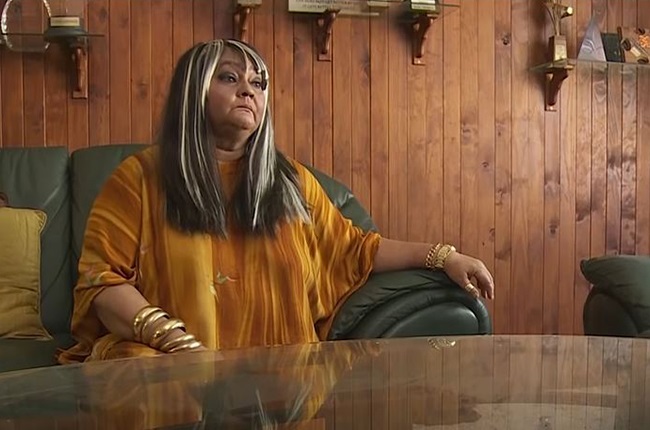
- Shaleen Surtie-Richards, who died this week, said she wanted to talk openly about her financial troubles.
- Speaking to Hannes van Wyk for the programme Hannes Aan Huis on kykNET (DStv 144), she said she had been through the "deepest, deepest waters".
- The actor was awarded a special provincial funeral which will take place on Sunday.
Shaleen Surtie-Richards said she openly wanted to talk about her financial troubles in one of her final TV interviews before she died.
The iconic actor with a professional career stretching over three decades died on Monday morning in a guest house in Edgemead, Cape Town, where she had just completed a few weeks of filming on a recurring role in kykNET's Arendsvlei telenovela. She was 66 years old.
President Cyril Ramaphosa on Friday approved the request for a Category 2 Special Provincial Funeral. The funeral will take place on Sunday 13 June at 14:30 at the Durbanville Memorial Park in Cape Town.
READ MORE | Shaleen Surtie-Richards to receive special provincial funeral
The SABC didn't respond to a media enquiry on Friday about whether SABC News (DStv 404) would broadcast or cover it. Newzroom Afrika (DStv 405) said that it would be covering the funeral proceedings on Sunday and that the news channel "will be dipping in and out from 14:30 to cover it".
eNCA (DStv 403) spokesperson Sam Dube couldn't confirm whether the channel would possibly cover the funeral and said that "information on the broadcasting of Shaleen Surtie-Richard's funeral will be shared on channel".
'I had nothing, nothing, nothing'
Known for her iconic roles of Fiela in Fiela se Kind and Nenna in Egoli, Shaleen, in an interview on Hannes Aan Huis on kykNET (DStv 144) that was broadcast this week, said that she "wanted the opportunity to speak about her financial struggles openly", and that she had gone through "the deepest, deepest waters".
With the interview done inside her home, she told Hannes van Wyk that "I sat here without a cent to my name. My house – they wanted to put on the market. To tell you the truth, my house was almost sold out from under me".
"I had nothing, nothing, nothing. And I thought: I'm going to talk about this. Not for people to feel sorry for me, but for people to know that a lot of us are sitting with this problem.
"People are too ashamed to say anything," Shaleen explained. "I haven't had food in my house. It was so bad there wasn't any food in the house."
She also lost her medical aid. "I couldn't pay it any further, and they took it away. So at this stage, I just have to pray very hard that I won't get ill because I don't even have medical aid anymore. I have nothing. I still owe on my water as well. I mean, they don't cut it otherwise; I'd be there as well."
Shaleen explained how work had dried up for a year. "You're paid according to the productions that you do. And if there isn't a production, there isn't money.
"I'm sitting here with a million awards behind my name that now absolutely means nothing to me."
South African performers are still not receiving residuals for rebroadcasts of their TV and film work, as happens in other countries. President Cyril Ramaphosa, after 15 months, has refused to sign the long-stalled Performers Protection Amendment Bill that has now been referred back to the National Assembly.
